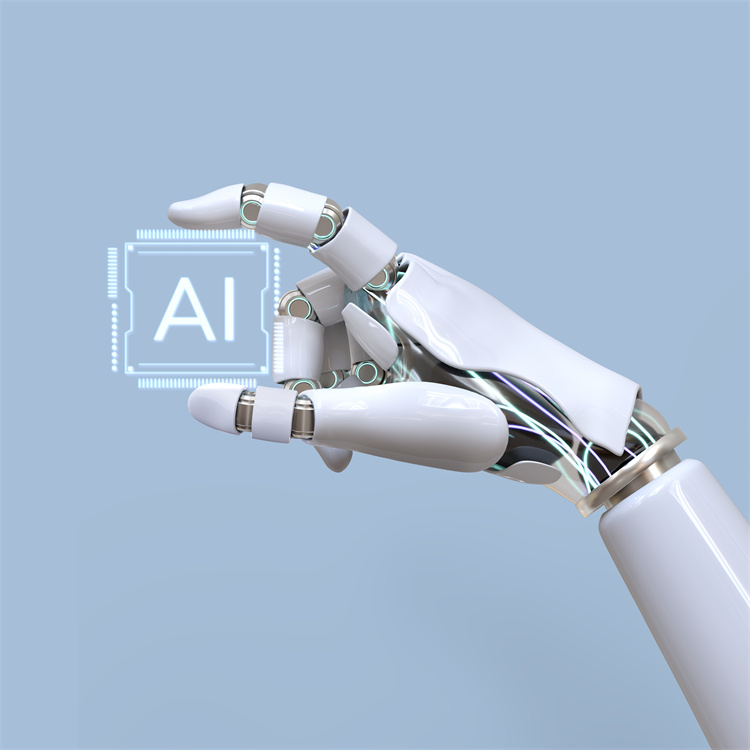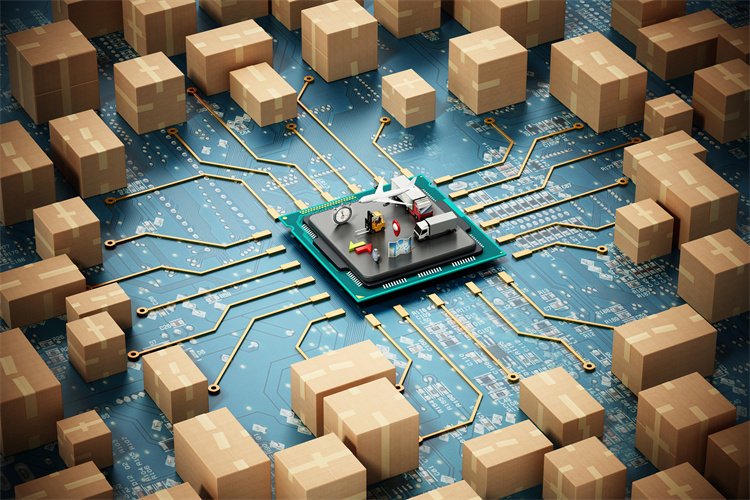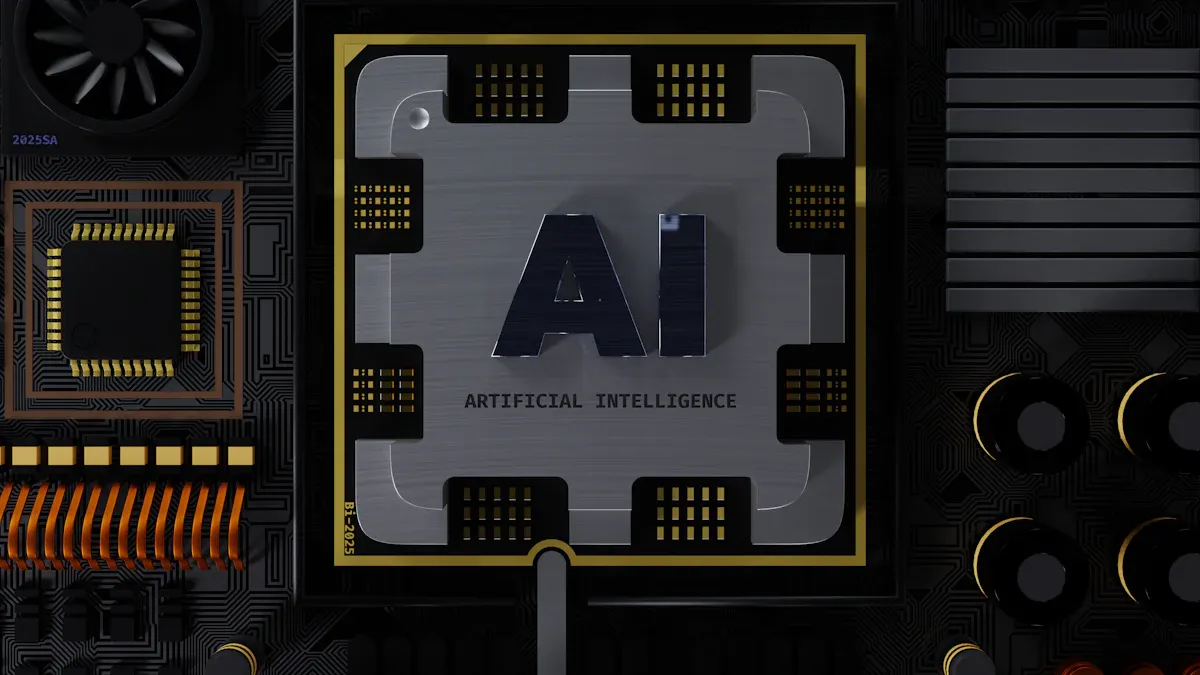AI Intelligence in 2025 and Beyond Driving Innovation and Change

Imagine a world where artificial intelligence reshapes how you live, work, and solve problems. AI intelligence is already revolutionizing industries, and by 2025, its transformative potential will touch every corner of society. From predicting crop health to improving healthcare access, AI is tackling global challenges while driving innovation. The future is closer than you think.
Key Takeaways
AI is changing industries by making work faster and easier. It also helps create custom experiences in areas like health and school.
Building ethical AI is very important. Developers should make sure AI is clear, fair, and responsible.
AI will improve in the future. It will create smart tools that help with daily tasks and save time.
The Current State of Artificial Intelligence
Key Applications of AI Intelligence Today
Artificial intelligence is everywhere, and you might not even realize it. From your favorite online store to the apps on your phone, AI is working behind the scenes to make life easier. It’s solving problems, making decisions, and even recognizing images or understanding your voice. Here are some of the most exciting ways AI is being used today:
AI helps businesses predict what customers want and when they want it.
It powers tools that can read and respond to human language, like chatbots.
AI systems analyze images, like X-rays, to assist doctors in diagnosing diseases.
Across industries, AI is transforming how things get done. Take a look at this table to see how it’s making an impact:
Industry | Application of AI |
|---|---|
Manufacturing | Predictive maintenance and quality control |
Retail | Personalized shopping experiences |
Finance | Fraud detection and risk assessment |
Healthcare | Diagnostic assistance and patient monitoring |
Legal | Document review and contract analysis |
AI is also reshaping industries like logistics, cybersecurity, and banking. For example, in logistics, AI improves route planning and even powers autonomous vehicles. In cybersecurity, it detects threats in real time. You’ve probably interacted with AI-powered chatbots in customer service, which make solving issues faster and easier.
Limitations and Challenges in Current AI Systems
While artificial intelligence is impressive, it’s not perfect. Developers face several challenges that slow down progress. One of the biggest issues is data. AI relies on massive amounts of data to learn, but not all data is accurate or unbiased. This can lead to unfair outcomes. Ethical concerns also arise when AI makes decisions that affect people’s lives. Who’s responsible if something goes wrong?
Other challenges include legal and regulatory hurdles. Governments are still figuring out how to regulate AI without stifling innovation. Developers also struggle with accountability. If an AI system makes a mistake, who’s to blame? These questions make it clear that AI still has a long way to go.
Despite these challenges, the future of AI looks bright. With advancements in machine learning and better data management, you can expect AI to become even more reliable and impactful.
Future Advancements in AI Intelligence

Personalized Intelligent Systems and Their Impact
Imagine having an AI that knows you better than your closest friend. By 2025, personalized intelligent systems will redefine how you interact with technology. These systems will analyze your behavior, preferences, and even health data to deliver tailored experiences. For instance, AI will act as a proactive health companion, integrating genetic data and real-time monitoring to predict and prevent illnesses. In education, hyper-personalized learning platforms will adapt to your unique learning style, making studying more effective and enjoyable.
Here’s a glimpse of what’s coming:
Advancement Type | Description | Potential Industry Disruptions |
|---|---|---|
Predictive Personalized Healthcare AI | AI systems will evolve to become proactive health companions, integrating genetic data and real-time monitoring. | Healthcare Delivery, Insurance, Pharmaceutical Development, Telemedicine, Personalized Nutrition |
Hyper-Personalized Learning Platforms | AI will create individualized educational experiences, adapting to students' cognitive patterns and learning styles. | Higher Education, K-12 Education, Professional Training, Tutoring Services |
AI-Powered Universal Communication | Advanced NLP technologies will enable real-time translation, enhancing international collaboration and understanding. | Translation Services, International Business |
These advancements will make your daily life smoother and more efficient. Whether it’s receiving instant support from AI-powered chatbots or enjoying personalized content recommendations, AI intelligence will transform how you experience the world.
Cross-Platform Collaboration in AI Ecosystems
AI ecosystems thrive when platforms work together seamlessly. Cross-platform collaboration will unlock new possibilities by combining the strengths of different AI systems. For example, AI can automate repetitive tasks, giving developers more time to focus on creative solutions. It can also improve code quality by identifying errors and ensuring best practices.
Here’s how this collaboration benefits you:
Faster app development with automated testing and debugging.
Enhanced user experiences based on behavior analysis.
However, achieving seamless collaboration isn’t easy. Platforms often face challenges like proprietary data models, lack of universal APIs, and real-time synchronization issues. These hurdles require innovative solutions to ensure AI breakthroughs continue to drive progress.
Ethical AI and Responsible Development
As AI intelligence becomes more powerful, ethical development must remain a priority. You deserve AI systems that are transparent, fair, and secure. Developers must ensure that AI treats everyone equally by eliminating biases in data. They also need to make AI systems understandable, so you know how decisions are made.
Key principles of ethical AI include:
Transparency: AI systems should explain their decisions clearly.
Accountability: Developers must take responsibility for AI throughout its lifecycle.
Security and privacy: Safeguards must protect your sensitive data.
Organizations can promote responsible AI by focusing on data privacy, algorithm explainability, and regulatory compliance. These practices ensure that AI aligns with societal values and serves the greater good.
Challenges and Ethical Concerns in AI Development
Data Privacy and Security in AI Systems
When you think about artificial intelligence, data privacy might not be the first thing that comes to mind, but it’s a big deal. AI systems rely on massive amounts of data to function, and this creates some serious privacy concerns. For example:
Unauthorized data collection can lead to privacy breaches that are hard to detect.
Lack of transparency in AI algorithms can hide biases or flaws, potentially harming individuals.
Discriminatory outcomes from AI applications can worsen social inequalities, especially for marginalized groups.
To keep your data safe, AI systems need robust security measures. Automated threat detection and real-time monitoring are game-changers. They help identify unusual activities and stop threats before they cause damage. AI can also predict vulnerabilities by analyzing past and current data trends. These tools ensure your sensitive information stays protected while AI continues to evolve.
Addressing Bias and Fairness in AI Algorithms
AI is only as good as the data it learns from, and that’s where bias sneaks in. If the training data isn’t representative, the algorithm might produce unfair results. Common sources of bias include:
Selection bias, where the data doesn’t reflect the real world.
Confirmation bias, which reinforces existing prejudices.
Measurement bias, caused by errors in how data is collected.
To make AI fairer, developers need to identify and fix these biases early. Using fairness metrics and ethical frameworks, like the European Union’s AI Act, can help ensure AI treats everyone equally. By focusing on equitable outcomes, you can trust that AI systems will work for everyone, not just a select few.
The Importance of Human-Centric AI Design
AI should work for you, not the other way around. That’s why human-centric AI design is so important. This approach prioritizes your needs and experiences, making AI more meaningful and user-friendly. It also emphasizes empathy and co-creation, ensuring AI solutions enhance your autonomy and align with ethical values.
Key principles of human-centric AI include:
Understanding your needs to create effective solutions.
Ensuring fairness, transparency, and privacy in AI design.
Involving you in the design process to meet real-world challenges.
Balancing automation with human control to maintain oversight.
When AI focuses on you, it becomes more accessible, inclusive, and trustworthy. This approach doesn’t just improve usability—it builds long-term loyalty and confidence in artificial intelligence.
AI Intelligence Driving Innovation Across Industries

Transforming Healthcare with Artificial Intelligence
Artificial intelligence is changing how you experience healthcare. It’s not just about faster diagnoses; it’s about making healthcare smarter and more accessible. AI tools are helping doctors reduce errors and save lives. For example, diagnostic tools powered by AI are cutting error rates by up to 85%. That means fewer misdiagnoses and better outcomes for patients like you.
"With AI, we don’t replace intelligence. We replace the extra hours spent doing tasks on the computer." – Jason Warrelmann, vice president of healthcare industry at UiPath.
The global AI in healthcare market is booming. By 2030, it’s expected to exceed $180 billion. AI is also helping surgeons perform minimally invasive procedures with greater precision. In the future, you might see AI improving clinical trials, managing patient data securely, and even reducing burnout among healthcare professionals by handling tedious documentation tasks.
Revolutionizing Education Through AI-Driven Systems
Education is evolving, and AI is leading the charge. Imagine having a tutor that knows exactly how you learn best. AI tutors provide personalized support, helping you tackle tough subjects with ease. Predictive analytics can even forecast your performance, giving teachers a heads-up if you’re struggling.
AI-driven systems like adaptive learning platforms adjust lessons to match your progress. Tools like Dreambox make learning fun and effective for students at all levels. Plus, AI-powered chatbots answer your questions instantly, making studying less stressful. Teachers benefit too, with AI automating grading and freeing up time for instruction. However, challenges like privacy concerns and biased content still need attention to ensure AI works for everyone.
AI's Role in the Future of Transportation
The AI revolution is reshaping how you travel. Autonomous vehicles are no longer science fiction. They promise safer roads by reducing accidents caused by human error, which accounts for 94% of crashes. AI-powered traffic management systems are already cutting congestion and saving fuel. Imagine smoother commutes and fewer traffic jams.
AI is also enhancing urban mobility. Smart infrastructure optimizes public transportation, making it more efficient and eco-friendly. Innovations like drone taxis and driverless buses are on the horizon, offering exciting new ways to get around. With AI, transportation is becoming safer, greener, and more personalized for you.
AI in Supply Chain Management: The JUSDA Perspective
Leveraging AI Intelligence for Supply Chain Optimization
AI is transforming supply chain management, making it smarter and more efficient. You’ve probably noticed how supply chains have become more complex with globalization. AI steps in to simplify this. It helps businesses predict demand, optimize inventory, and even manage risks. For example, demand forecasting uses historical data to ensure you always have the right products at the right time. Companies like Walmart already use AI to reduce costs and improve efficiency.
However, optimizing supply chains with AI isn’t without challenges. Here’s what businesses face:
Data quality issues due to inconsistent formats.
High implementation costs for software and hardware.
Resistance to change from employees.
Data security concerns with large-scale data transfers.
Despite these hurdles, AI’s potential to revolutionize supply chains is undeniable. It’s not just about cutting costs; it’s about creating a seamless experience for everyone involved.
JusLink: Revolutionizing Supply Chain Management with AI
JusLink, JUSDA’s intelligent supply chain platform, takes AI to the next level. It uses advanced technologies like IoT and big data to give you real-time insights. Imagine knowing exactly where your shipment is or predicting potential delays before they happen. JusLink’s AI-driven tools, like sales forecasting and risk management, ensure your supply chain runs smoothly. It’s like having a crystal ball for your logistics.
What sets JusLink apart is its ability to adapt. Its microservices architecture lets businesses customize features to fit their needs. Whether you’re managing inventory or coordinating global shipments, JusLink makes it easier and more efficient.
Real-World Applications of AI in Supply Chain Efficiency
AI isn’t just theoretical—it’s already making a difference. Here are some real-world examples:
Use Case | Example |
|---|---|
Route optimization to save fuel and time. | UPS uses AI to cut delivery miles and reduce costs. |
Predictive maintenance for machinery. | Boeing uses AI to prevent part failures and ensure safety. |
Sustainability tracking across supply chains. | Nestlé uses AI to monitor carbon emissions and meet goals. |
These examples show how AI improves efficiency, reduces costs, and supports sustainability. It’s clear that AI is the future of supply chain management, and platforms like JusLink are leading the way.

JUSDA Solutions
To provide you with professional solutions and quotations.
Artificial intelligence is reshaping your world, offering endless possibilities for industries and society. From smarter farming to personalized education, AI is unlocking opportunities that will define the future.
In agriculture, AI boosts efficiency with precision irrigation and autonomous equipment.
Manufacturing benefits from reduced equipment breakdowns, while financial services save billions through AI-driven solutions.
Logistics and retail are evolving with predictive systems and personalized experiences.
However, challenges like data security, ethical concerns, and high implementation costs remain. Addressing these issues ensures AI develops responsibly, aligning with your values. By embracing innovation and tackling obstacles, you can look forward to a future where AI drives progress and improves lives.
See Also
Transforming Our Reality: The Impact of AI Technology
Enhancing Productivity Through Innovative AI Supply Chain Solutions
Discovering Tomorrow's Supply Chain: Insights on AI Integration
Reimagining Efficiency: Smart Transport Solutions for Indigenous Needs
